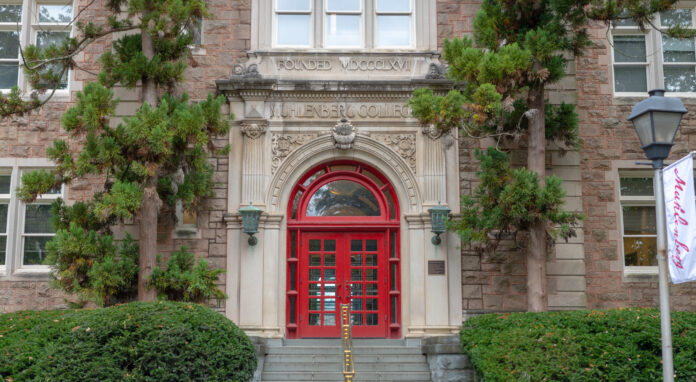It is no secret that Muhlenberg students are both active and passionate when it comes to politics. However, one college-sponsored program that is not as widely known among students is the Muhlenberg College Institute of Public Opinion. When one student was asked her opinion of the Institute, she exclaimed that, “I didn’t even know it existed.”
Despite not being well-known at the College, the Institute does incredibly important work and is regularly quoted in national and local news outlets. Created in 2002, the Institute uses scientifically-based surveys to measure the public’s view on electoral and public policy issues with a focus on the environment and healthcare. While the Institute was created in part to enhance the public profile of the College, it also allows Muhlenberg to be involved in the Pennsylvania and Lehigh Valley communities by helping state and local organizations with their research needs. The Institute is highly reputable, and the data it gathers is integral to forecasting the outcomes of elections at the local, state and national levels. In the 2020 election, its research was used to help correctly predict the outcome of the presidential and Senate elections.
“Twenty twenty-two will be a big year for the Institute with major elections taking place in Pennsylvania. We will likely do some polling in the May primaries, but most of our efforts will be targeted at the general election this November with a US Senate and governor’s race on the ballot in the state.”
The Institute is run by its founder, Christopher P. Borick, Ph.D., a professor of political science at Muhlenberg. Over his two decades running the Institute, he has conducted over 300 large-scale public opinion surveys. This election cycle is no different; according to Borick, “Twenty twenty-two will be a big year for the Institute with major elections taking place in Pennsylvania. We will likely do some polling in the May primaries, but most of our efforts will be targeted at the general election this November with a US Senate and governor’s race on the ballot in the state.” Borick also encourages Muhlenberg students to vote in this election cycle and make their voices heard, stating “Elected officials respond to the needs and preferences of their constituents that turn out in elections, and are engaged in public affairs. When students don’t vote or participate in politics, their issues may be more easily ignored by policymakers.”
In addition to Borick, the Institute also has a number of student managers that help administer the research. There are a number of opportunities for students to be a part of the Institute. Chau Dinh ‘24 says that her involvement with the Institute has been a positive experience. Dinh became interested after a friend introduced her to Dr. Borick. “As an international student, I was interested in getting to know a different country’s voting system as well as its effects on the population at large. By becoming a part of the Institute, I learned about the difference in responsiveness among counties and made speculations of whether they have an email address or phone number, which determines their development.”
“Elected officials respond to the needs and preferences of their constituents that turn out in elections, and are engaged in public affairs. When students don’t vote or participate in politics, their issues may be more easily ignored by policymakers.”
There are many opportunities for students wanting to join next year when the Institute moves into the new Parkway Boulevard Building. Over the twenty years of its existence, hundreds of students have played key roles in the Institute’s work. Roles have included survey design, data collection, data analysis and report production and dissemination. For students wanting to know more, the Institute recently created a Twitter account (@muhlenberg_poll) where they post updates about their research and results.
Matthew '24 is a philosophy and political thought major on the pre-law track.






















